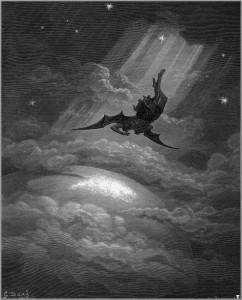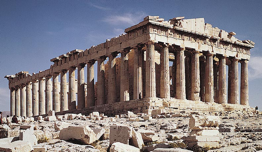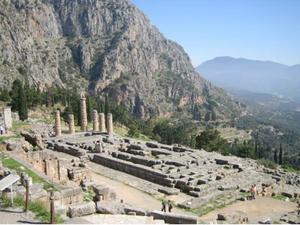January 22, 2013 at 12:58 pm
The Orientation office is now reviewing applications for Summer 2013
advisor positions.
Freshmen (and higher) are eligible for FYSOP staff positions.
Sophomores (and higher) are eligible for the position of Student Advisor.
Serving on the Summer Orientation staff is a great way to talk about
the unique Core style of learning to incoming students, and of course
is a great way to spend a summer in Boston.
There is an Orientation Information Session, TONIGHT, Tuesday January
22nd, from 5:30-7 PM in the GSU Faculty Dining Room (fifth floor —
take the elevator in the food court). Please attend if you have any
interest in applying for a summer staff position; your attendance does
not represent a commitment.
The application deadlie is THIS THURSDAY, January 24th, at 4 PM. You
can download an application, and find applicatoin instructions, at
http://www.bu.edu/orientation/files/2012/12/2013-Summer-Leadership-App.pdf.
If you have any questions, please contact the Orientation staff via
http://www.bu.edu/orientation, or email Prof. Eckel (mdeckel@bu.edu)
or Prof. Nelson (nelson@bu.edu).
By mdimov
|
Posted in Uncategorized
|
January 17, 2013 at 4:37 pm
Language and Other Abstract Objects was published by Rowman & Littlefield in 1981. It discusses the ideas of Plato studied in CC101.
Internalization and externalization also explain why, for Plato, poetry corrupts our psyches. Given our psychology, there are two features of poetry which make it an especially potent drug. First, the music and rhythms with which poetry is expressed pour directly into our psyche. Second, poetry tends to be expressed in imitative style: the characters speak as though from their own first-personal perspectives. In this way, poetry can preserve the first-personal perspective throughout its transmissions. Whether we are poet, performer or audience, we imaginely take up the perspective of the characters: even the best of us abandon ourselves and imaginatively take up their feelings. It is as though imitation blurs the boundary between inside and outside. Through imitation we get outside ourselves imaginatively, but psychologically we take the outside in. By pretending to be these characters, we unconsciously shape our characters around them. The mimetic poet, says Plato, sets up a bad constitution in the psyche of each person.
By mdimov
|
Posted in Academics, Curriculum, Great Ideas, Great Questions
|
Tagged boundary, CC101, expression, form, imagination, imitation, inside, outside, perform, Plato, poetry
|
January 17, 2013 at 4:27 pm
Professor Knust held a lecture in September of 2011, of which the Core is belatedly releasing the concluding minutes. While it related to The Book of Genesis, which is studied in CC101, the Core feels that the questions raised here are important, and relevant to many other works.
In the end, I'm not sure what I think about this God, about this book, or about these ancestors. What about you?
Let's think about God first. Lets see -- what does God do? Makes a beautiful Creation, only to destroy it by a flood. This God is so jealous of human achievement that He has to scatter them whenever they accomplish something of significance. He picks a trickster younger son over his more staid elder brother. He favors one line of genealogy over others for no apparent reason. He punishes entire cities for the behavior of a few men living there. He demands such a high degree of loyalty that a willingness to execute one's own son on his behalf is regarded as an exemplary demonstration of good faithful behavior. He makes promises to humanity knowingfull well that they will misbehave, kill one another, and exploit what has been given to them.
What about the ancestors? They regard the women in their lives as property, to be disposed of at will. They treat their male slaves the same way. They take slaves into their household and use them to breed children who can then be kicked out of the house. They get rewarded for their arrogant dreaming, and their sense of their own indisputable importance. They dream dreams and keep hoping they will have a land of their own. They try to keep their family alive. They set out on adventures without knowing how it will turn out. They fight with their brothers and sisters over who is the best and who should get the most stuff.
Perhaps we can appreciate the difficulty of understanding why the Gods and the ancestors behave the way they do; perhaps we too wonder if the destruction of some some people for the flourishing of others can have some explanation. And we find out that the explanations are woefully lacking. Perhaps the people of Israel knew something about a capricious God, untrustworthy neighbors, and the disastrous consequences of family squabbling, famine, and barrenness. Perhaps they especially knew it when they sat down to make Genesis one of their national books. And perhaps we do too.
By mdimov
|
Posted in Academics, Community, Core Authors, Core Lecturers, Curriculum, Great Questions
|
Tagged ancestors, creation, destruction, explanation, Genesis, God, Knust, lecture, question, reason, understand, why?
|
January 17, 2013 at 3:48 pm


These are drawings by 19th century French artist Paul Gustave Doré, made for Paradise Lost. The first depicts Lucifer trying to hold on to Heaven before he is sent down to hell for inciting a war in the between the angels invariably causing the fall of man. The second shows Lucifer being cast out of heaven as he falls from the rays of light to the darkness of hell below.
By mdimov
|
Posted in Art, Curriculum, Uncategorized
|
Tagged banishment, Dore, drawing, exile, lucifer, painting, Paradise Lost, Punishment, satan
|
January 16, 2013 at 1:24 pm
This is just a reminder that we're very interested in helping out anyone from Core who might like to apply for the position of RA for the Core House (especially), 141 Carlton S. in South Campus (5 minutes from CAS) or the Core Floor in Warren Towers. The catch is that the last, mandatory info session is tomorrow (Wed., Jan. 16) at 7 pm in the Warren Towers Cinema Room (fourth floor) and the deadline for applications is the next day, Thursday the 17th.
Info and the application can be found on the ResLife website. If anyone would like to chat about what the position entails feel free to contact Prof. Nelson at nelson@bu.edu.
By CAS Core Curriculum
|
Posted in Announcements
|
Tagged housing
|
December 14, 2012 at 1:07 pm
Relating to the work of CC202 is the next analect, from Dostoyevsky:
The candlestick had long since burned low in the twisted candlestick, dimly lighting the poverty-stricken room and murderer and the harlot who had come together so strangely to read the eternal book.
By mdimov
|
Posted in Analects, Curriculum
|
Tagged candle, CC202, Crime, Dostoyevsky, eternal, poverty, prose, Punishment, unlikely
|
December 14, 2012 at 12:56 pm
Dedicated to all sleep-deprived Core students and faculty preparing their battlements for the approaching finals' week, and relating to the work of CC201, here is today's analect from Cervantes' Don Quixote:
All I know is that while I’m asleep, I’m never afraid, and I have no hopes, no struggles, no glories — and bless the man who invented sleep, a cloak over all human thought, food that drives away hunger, water that banishes thirst, fire that heats up cold, chill that moderates passion, and, finally, universal currency with which all things can be bought, weight and balance that brings the shepherd and the king, the fool and the wise, to the same level. There’s only one bad thing about sleep, as far as I’ve ever heard, and that is that it resembles death, since there’s very little difference between a sleeping man and a corpse.
By mdimov
|
Posted in Analects, Curriculum, Great Personalities
|
Tagged balance, blessing, corpse, death, Don Quixote, fear, level, sleep
|




